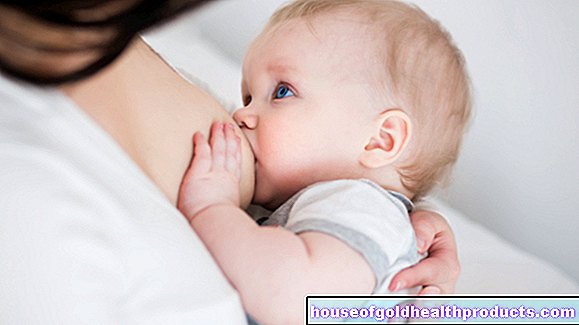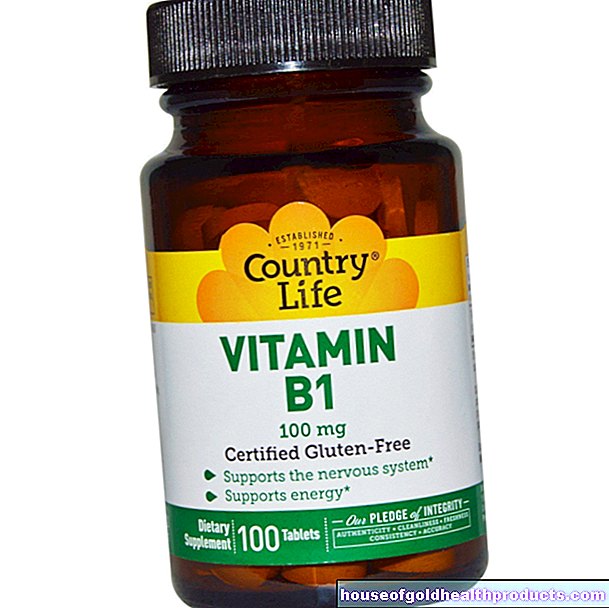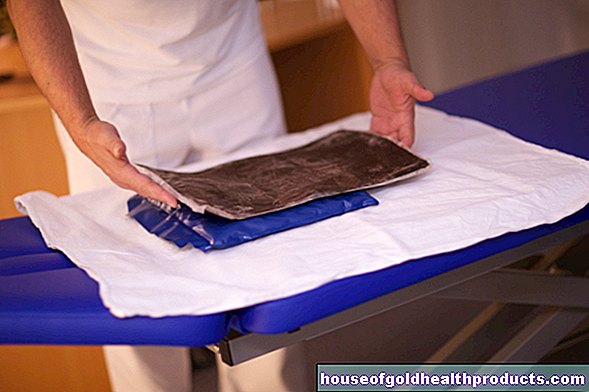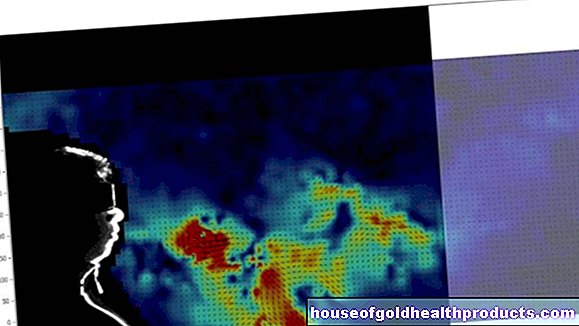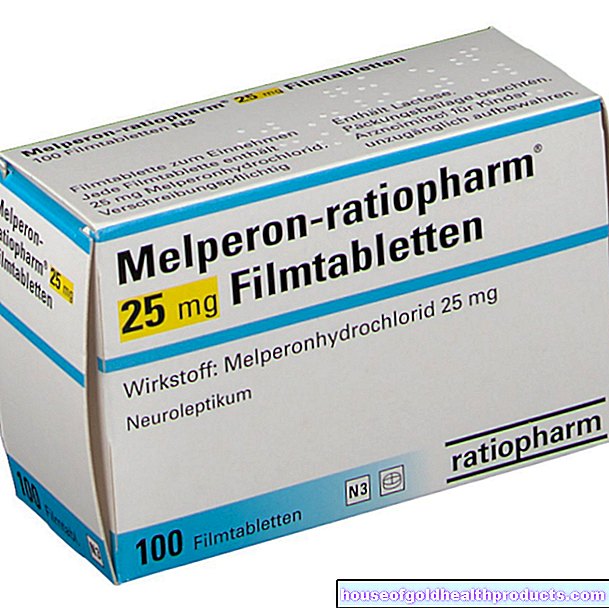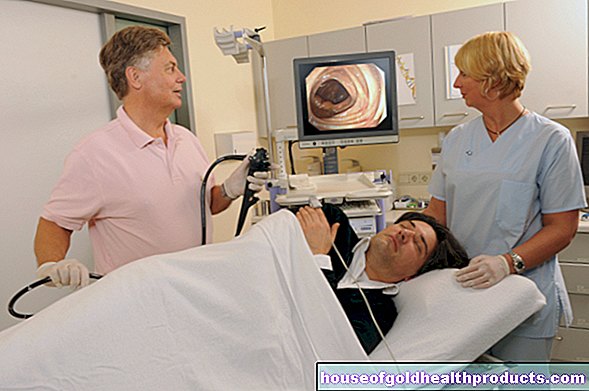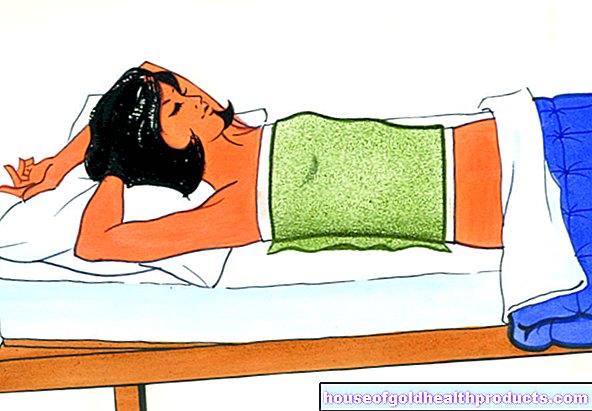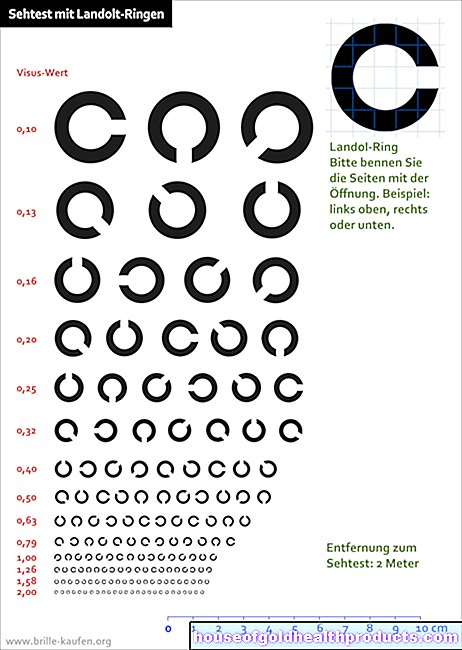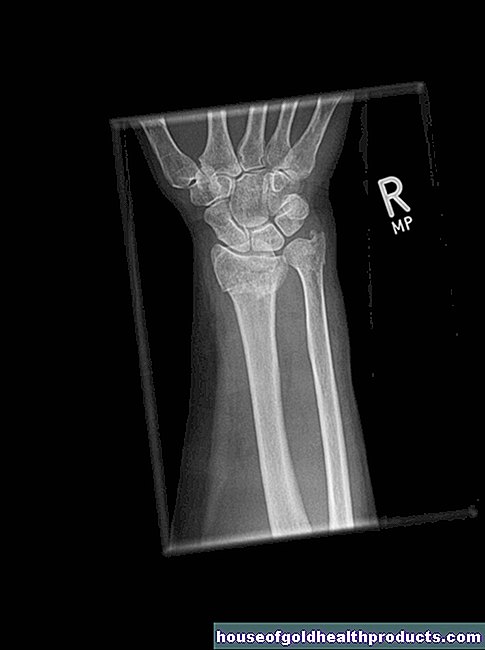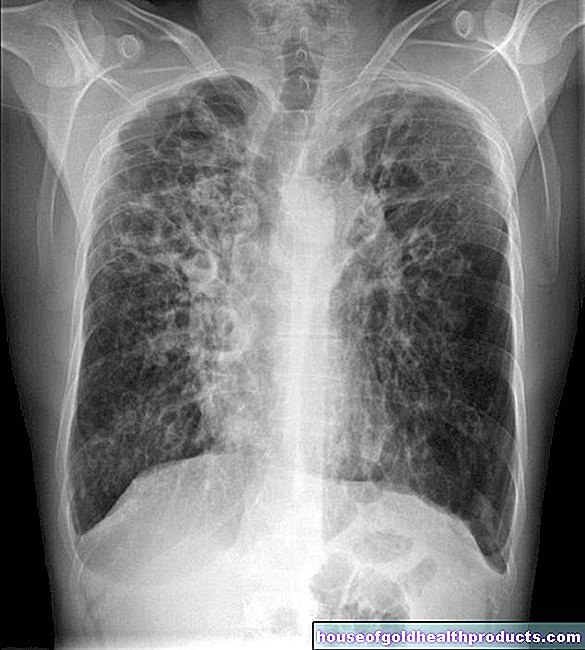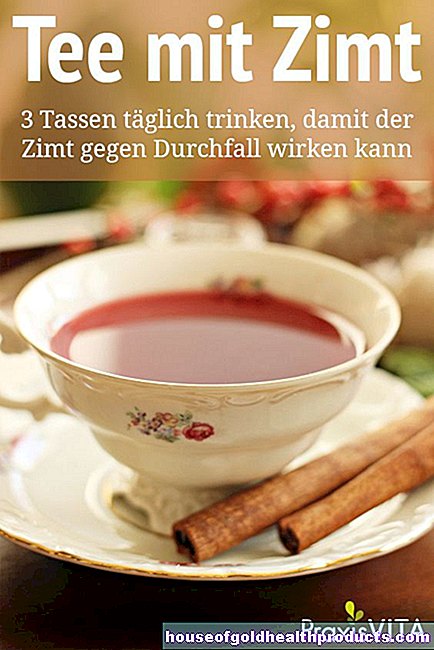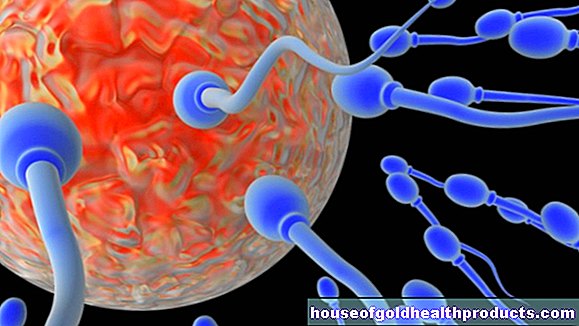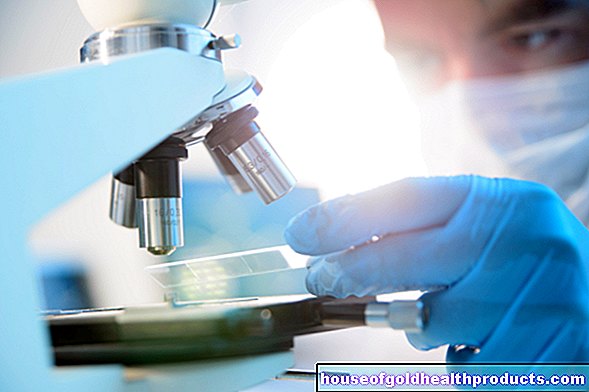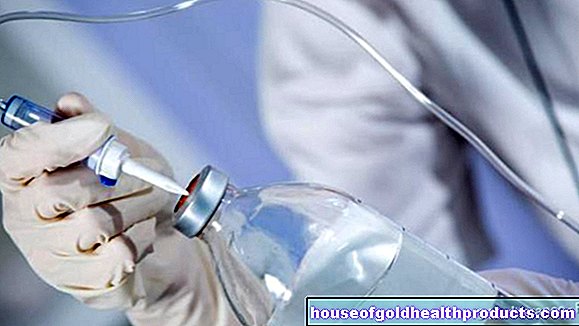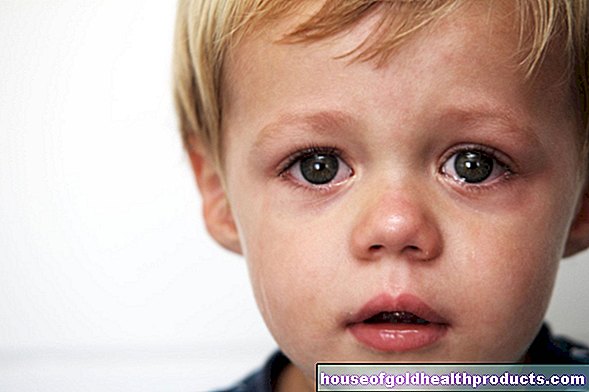Ritalin®
All content is checked by medical journalists.Ritalin is one of the most popular drugs for ADHD - attention deficit hyperactivity disorder, which occurs mainly in children and adolescents. The prescription drug has a stimulating effect, suppresses tiredness and increases drive and performance. That makes it a popular drug among teens and college students who abuse Ritalin for study. Read everything you need to know about Ritalin here.
This active ingredient is in Ritalin
Ritalin contains methylphenidate as the relevant active ingredient. Its effect is based on a short-term blockade of certain transporters for the messenger substances dopamine and noradrenaline in the brain. As a result, after being released by a nerve cell, these messenger substances cannot be taken up again in the original cell. This allows them to develop their effect longer - an effect that is desirable in attention deficit / hyperactivity disorder (ADHD). This is a functional developmental disorder of the brain in childhood and adolescence. Its exact cause is unknown, but experts suspect that signal transmission is impaired by dopamine and norepinephrine in those affected. The result is disturbed attention, motor skills and impulse control in the patient. Ritalin can counteract these symptoms.
The active ingredient reaches its maximum concentration in the blood about two hours after ingestion and is then almost completely broken down and excreted. The Ritalin effect wears off again within four hours.
When is Ritalin used?
Ritalin is primarily used in children aged six and over and adolescents with ADHD. However, the prescription is very strictly regulated. The following symptoms must be present for the drug to be prescribed:
- Short attention span
- Moderate to severe hyperactivity
- Distractibility
- Instability and impulsivity
- An abnormal EEG (brain wave measurement)
Ritalin does not cure ADHD, it simply suppresses the symptoms associated with the disorder. The drug must therefore be taken permanently. In addition, patients receive regular accompanying therapy in the form of cognitive therapy, parenting training and psychoeducation (comprehensive education of the patient and relatives about the disease). Without these accompanying measures, treatment with Ritalin will not be successful in the long term.
Ritalin in adults with ADHD
Until 2011, only children received Ritalin. Adults with ADHD were not treated with the drug because the drug was not approved for it. However, it can now also be prescribed to adults if they were diagnosed with ADHD in childhood.
Narcolepsy
Another area of application of the drug is the therapy of narcolepsy, popularly known as "sleeping sickness". Ritalin regulates daytime sleepiness through its performance-enhancing effect.
Misuse
As mentioned earlier, some people (students etc.) use Ritalin for study. However, this falls under drug abuse and, depending on the dosage, can have serious side effects.
What are the side effects of Ritalin?
As is common with all drugs, Ritalin also has side effects. The most important are:
- Growth retardation in children
- Decrease in appetite and decreased feeling of thirst
- Abdominal pain, nausea, vomiting
- Increased sweating
- insomnia
- Nervousness, restlessness, irritability
- Racing heart
- headache
- dizziness
- Tremble
- depressions
A severe overdose leads to overexcitation of the central nervous system. Possible consequences are palpitations, rise in blood pressure, psychotic states with delusions and hallucinations as well as convulsions and delirium. It is imperative to consult a doctor in such a case.
You should keep this in mind when using Ritalin
The effects of Ritalin can impair the ability to drive and use machines. Especially in the initial phase of use, dizziness and confusion can occur. So caution is advised.
Ritalin: contraindications
Do not take Ritalin in the following cases:
- Allergy to the active ingredient or other components of the drug
- Glaucoma (increased pressure in the eye)
- Pheochromocytoma (tumor of the adrenal gland)
- If someone is currently taking MAO inhibitors (antidepressants) or has taken them within the last 14 days
- Overactive thyroid (hyperthyroidism) or excess of externally supplied thyroid hormones (thyrotoxicosis)
- Anorexia Nervosa (anorexia)
- Depression, mood swings, thoughts of suicide
- Psychoses
- heart problems
- high blood pressure
- Vascular abnormalities
Ritalin: pregnancy and breastfeeding
There are no reliable studies on the use of the drug during pregnancy and breastfeeding. It is therefore not recommended to take it in these phases of life.
Ritalin and alcohol
The combined intake is not recommended. Alcohol can worsen the side effects of Ritalin and lead to other side effects that cannot be estimated.
How To Get Ritalin
Ritalin tablets not only require a prescription, they are also subject to the Narcotics Act. The regulation is therefore particularly strictly regulated and can only be based on a special medication prescription (BtM prescription). The attending physician decides on a prescription and other accompanying therapy measures after consultation with the parents or the patient.
Things worth knowing about Ritalin
The active ingredient in Ritalin was developed in 1944 by the Swiss chemist Leandro Panizzon. His wife Marguerite occasionally took the substance before a tennis match because, in her opinion, she could better follow what was going on on the court. Her nickname "Rita" later served as the namesake for the drug Ritalin.
Complete information on this drug
Here you can find the complete information about the drug as a download (PDF)
Tags: eyes laboratory values tcm